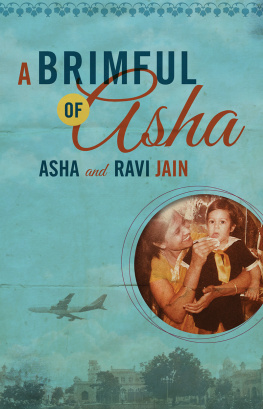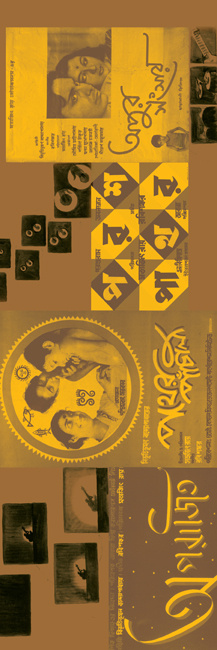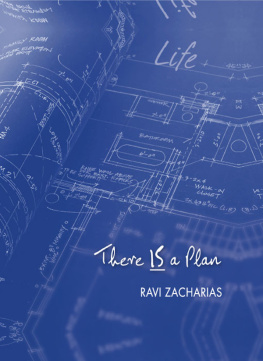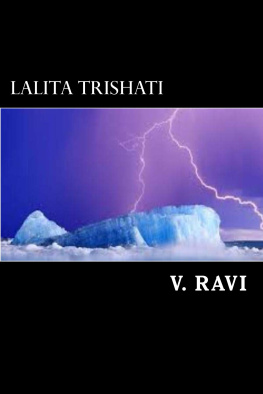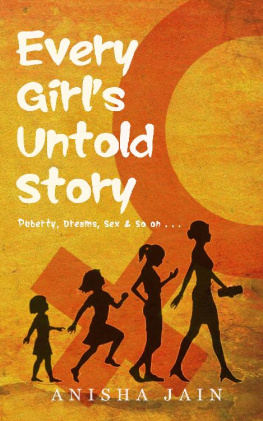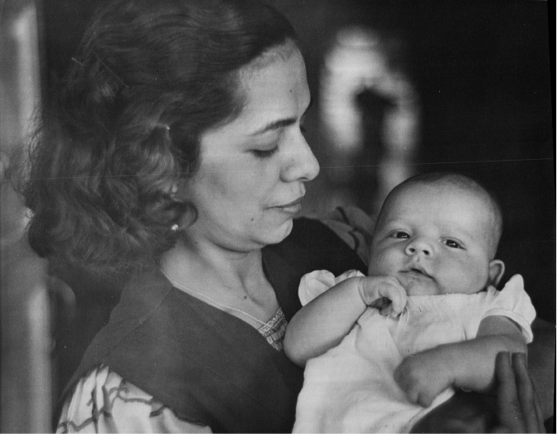
To family
Introduction
What mother doesnt want the best for her son? What son doesnt want to choose his own spouse?
When I first met Asha Jain she was quiet and retiring, maybe even shy or so it seemed. She reminded me of my mother, also an immigrant who had married a Canadian. My mother came from lush and exotic Venezuela (or so it seemed to her fellow Sudburians in the 1950s), but her public persona in Sudburys northern moonscape was quiet and retiring you might have thought she was shy. Asha arrived in Toronto from India, deep into the Canadian winter, having known her husband for about a month.
What sealed the link between these two ladies in my mind was their shared hatred of the theatre. Their first-generation sons had not gone into medicine (in my case) or the family business (in Ravis case); they had taken up the failure-prone, impoverished, and morally questionable lives of theatre-making. After I had opened the long-running Tamara in Los Angeles and New York City my mother told me, with no small amount of relief, that I could finally go back to university. What Asha told me, in her quiet way, was that her son didnt listen to her, and now he was making her do this play. Shy women with spines of steel.
I knew then that the true story of Ashas attempt to arrange a marriage for Ravi through coercion, deception, guilt, and ultimately love would be good drama, all too recognizable for many audiences. The way this play was presented, enacted by the real Asha and Ravi, brought it home, and I mean that literally. There is a scene in the play that one may not feel when reading the script: Ravi and Asha start fighting viciously over her dishonesty, and suddenly we are in their family dining room. It is awkward, discomforting, and embarrassing to the point that we feel we should leave so they can work it out. It is a brilliant moment of theatre becoming real a little too real.
In the early days, Ravi worried that Canadians would perceive the topic of arranged marriage as too foreign, anathema to our romance culture in whose myths love triumphs. But whose parents dontsort ofwant to protect their children by supporting the best marriages for them? The Indian tradition may seem unthinkable to many Canadians, but its impulse is intuitive and loving. And, after all, no one knows you better than your mother. Who better to choose your partner? A Brimful of Asha is a classic story about Canadian immigrants experiences and Canadian mothers and sons.
It gives me great pleasure to introduce you to the real Asha Jain and her real son, Ravi.
Richard Rose, Artistic Director, Tarragon Theatre
PS Ravi and I won. At Ravis recent weddingto the woman of his own choiceAsha publicly announced that by working with Ravi on this play, she had come to love the theatre. She loves making her audience laugh. And she and her son do that very well.
PPS And my mother and I go down with a photo in the first edition of a new Canadian play. I think she would have liked that.
The title A Brimful of Asha comes from a song written by British alternative rock band Cornershop in 1997 and is based on the history of film culture in India. Asha means Hope.
The play was first produced by Why Not Theatre in the Tarragon Extra Space, Toronto, in January 2012 with the following cast and crew:
Asha: Asha Jain
Ravi: Ravi Jain
Written by Asha and Ravi Jain
Director: Ravi Jain
Set design: Julie Fox
Video and lighting design: Beth Kates (Playground Studios)
Stage managers: Serena Parmar and Jenna Turk
Assistant Stage Manager: Fernando Lara
Script coordinator: Jenna Turk
Production Manager: Joey Morin
This version of the play is directly transcribed from the February 18, 2012, performance of A Brimful of Asha. While the play was the same every night (which is surprising as Asha is not an actor), there were nuanced details that changed with every performance. Surprises happened each night based on audience reaction and Ashas mood. Weve done our best to capture the liveness of the event.
Characters
Asha
Ravi
Prior to the start of the show both performers are onstage mingling with members of the audience as they arrive. The stage is set as a kitchen table and the audience is invited to help themselves to samosas and to chat. When the appropriate moment arises the show will begin.
RAVI: Okay! Ladies and gentlemen, thank you so very much for choosing to spend your Saturday evening with us. Were thrilled to have you here. Most of you have met my mother, Asha.
ASHA: Hi!
The audience responds by saying hi and clapping.
RAVI: Oh, you got a hi! There you go. My name is Ravi. Hi. (The audience says hi.) Oh, you got more his than I did. Thats not good for me. (laughs) Uh. Thank you so much for coming! So, tonight my mother and I are going to have a conversation and we are going to tell you a story. A very true story of something that happened to me in 2007.
ASHA: Hey! It happened to me too.
RAVI:(laughs) Right, Im sorry, thats why youre here.
ASHA: So I will welcome all of you.
RAVI: Please.
ASHA: I welcome you all to my home. This is not my home, but lets pretend for tonight. You have not come to see a play. You have come to help me sort out a dispute. A dispute between two generations which has existed as long as the world has existed. Every generation always believes that it is smarter than its parents, and I dont doubt for a minute. Of course, they are the future. They are much smarter. But they dont have common sense.
RAVI:(to the audience) Sounds like your mom, doesnt it? Right?
ASHA: Second dispute is cultural dispute. Im Indian. Ravis Canadian. So we dont understand the same language, same values, and this dispute became so big that I could not solve it in my house. So that is why I have invited you all, to help me sort out, and you will give me your honest opinion telling Ravi he is wrong.
RAVI: Hey Mom! Youre influencing the jury here! You cant just tell them what to say!
ASHA: If I dont tell them, how can I influence them! They know youre wrong!
RAVI: Yeah. (laughs) You did it again!
ASHA: No, I didnt.
RAVI: Bribing them with samosas!
ASHA: No. That is welcoming them in my home. If they come into my home I will offer them snacks, cheese, and crackers it is not bribing. I am not an actor. Ive never been to the stage. This is my first time. So if I go blank in the middle of the thing, please be patient. And try to understand my plight of my heart.
RAVI: Oh, come on. What?! What is that?
ASHA: The meaning!
RAVI: Theres no meaning! Theres no lines to memorize. It doesnt matter that youre not an actor. Were just speaking the truth. So all you need to do is remember the truth. How can you forget the truth?
ASHA: The pressure has driven me to a condition called Senile. Thats why I can go blank in our conversation. I go completely blank on my own. I forget where I am. And sometimes I will sit alone and talk to myself.
RAVI: Well you wont have to do that tonight. Because we have a lot of people here to hear you!
ASHA: I know. I already feel so comforted that they are here.
RAVI: I also feel comforted that youre here! I feel so close to all of you. Just, you know, just to put that out there.
Next page
